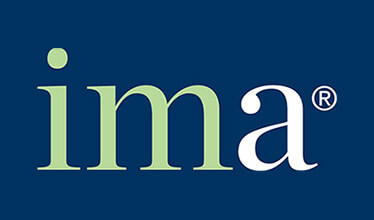Today’s fragile world has made geopolitical uncertainty a key risk for organizations. It has the potential to affect any business in any part of the world – irrespective of the industry, size and business volumes. I say this because in the last few years, the world has entered a new, progressively uncertain phase of geopolitics. And in this volatile milieu, the role of the board of directors, especially that of the independent directors is critical.
While lines are being drawn in the battlefield, businesses cannot remain unaffected and indifferent. Organizations, economies, societies and the environment form an interconnected, complex cause-and-consequence system that underpins the working of the new world. In such a scenario, an understanding of the rapidly changing global geopolitical scenario and an equally effective risk mitigation strategy are important to a business’s survival.
Multinational businesses and local enterprises that work with them need to know where and why these risks occur and how they will impact their business in the near and long-term. Just as business growth and profitability are critical to an organization’s existence, so is risk mitigation, especially that of geopolitical risks.
Here are some ways in which board members can successfully deliver on this responsibility:
Relating Politics to Business
In 2011, the Arab spring movement started by a single person was responsible for losses and other negative impacts in 22% of businesses globally. The individual protest initially started as a sign of harassment by local officials. The actions however became the catalyst for the Arab Spring movement – which in turn led to a rise in the global oil prices and affected cargo movement worldwide. This incident shows that while geopolitical risks are hard to predict, their effects can cascade numerous business factors.
While one cannot predict or foresee geopolitical risks, enterprises must ring-fence themselves to ensure that their consequences are minimal. In their capacity as risk managers, the board of directors should continually assess geopolitical risks facing their organization across its global value chain. They should ensure that the strategies and policies designed by the local management are adequate and competent to combat these risks.
Growth Strategy
Global companies inadvertently have connections with economies around the world. However, given the complex dynamics of today’s world, global investment decisions need to be taken with prudence, foresight and a balanced viewpoint. In their leadership capacity, the board of directors should guide the management of the organization to combat the adversities without affecting its performance.
Diversification, for instance, is an important strategy. While many global organizations today rely on a competitive manufacturing economy like China for their outsourcing and manufacturing needs, a ‘China plus one’ policy will go a long way in mitigating this dependence (it is happening in most organisations). The board of directors should play an important role in identifying the ‘plus one’ markets while ensuring that its caters to the business and ethical requirements of the organization.
Responsibility towards Investors
The Board is accountable to the investors of the organization. Hence, it is only fair that the board addresses their concerns strategically and impact fully. As the world stands today, geopolitical risks are on top of investors’ minds. In a Gallup 2017 survey of more than 1,000 investors, 75% of respondents expressed worries about the economic impact of the various military and diplomatic conflicts happening around the world, ranking geopolitical risk ahead of political and economic uncertainty.
Independent directors are indeed best-suited for this role and can make significant contributions towards helping the management of an organization understand the impact. This will help organisations grapple with the consequences of new realities better.
Conclusion
In 2018, the world economy is facing growth after a prolonged period of slump. Paradoxically, geopolitical risks have registered an unprecedented increase and the trend is only set to accelerate further. Countries are building walls, threatening annihilation through nuclear attacks, witnessing increasing terrorism threats, reeling under the pressures of internal conflicts and edging eerily closer to the next world war. This contrasting scenario is the new reality of global business.
The need for risk mitigation is greater than ever before and consequently, the role of the board of directors is historically more pronounced and their expertise more sought after. On their part, the board of directors should refrain from status quo thinking and be alert to the geopolitical signals from the world of their enterprise. The key to success in this difficult scenario will be founded on the directors’ guidance pertaining to robust planning, continual improvement and proactive mitigation of geopolitical risks.
Independent and non-executive directors are better aware of external environmental trends and developments due to their exposure to more than a single company. This strength needs to be harnessed in a strategic manner by management teams to ensure better predictability and risk management in case of any external eventuality.











